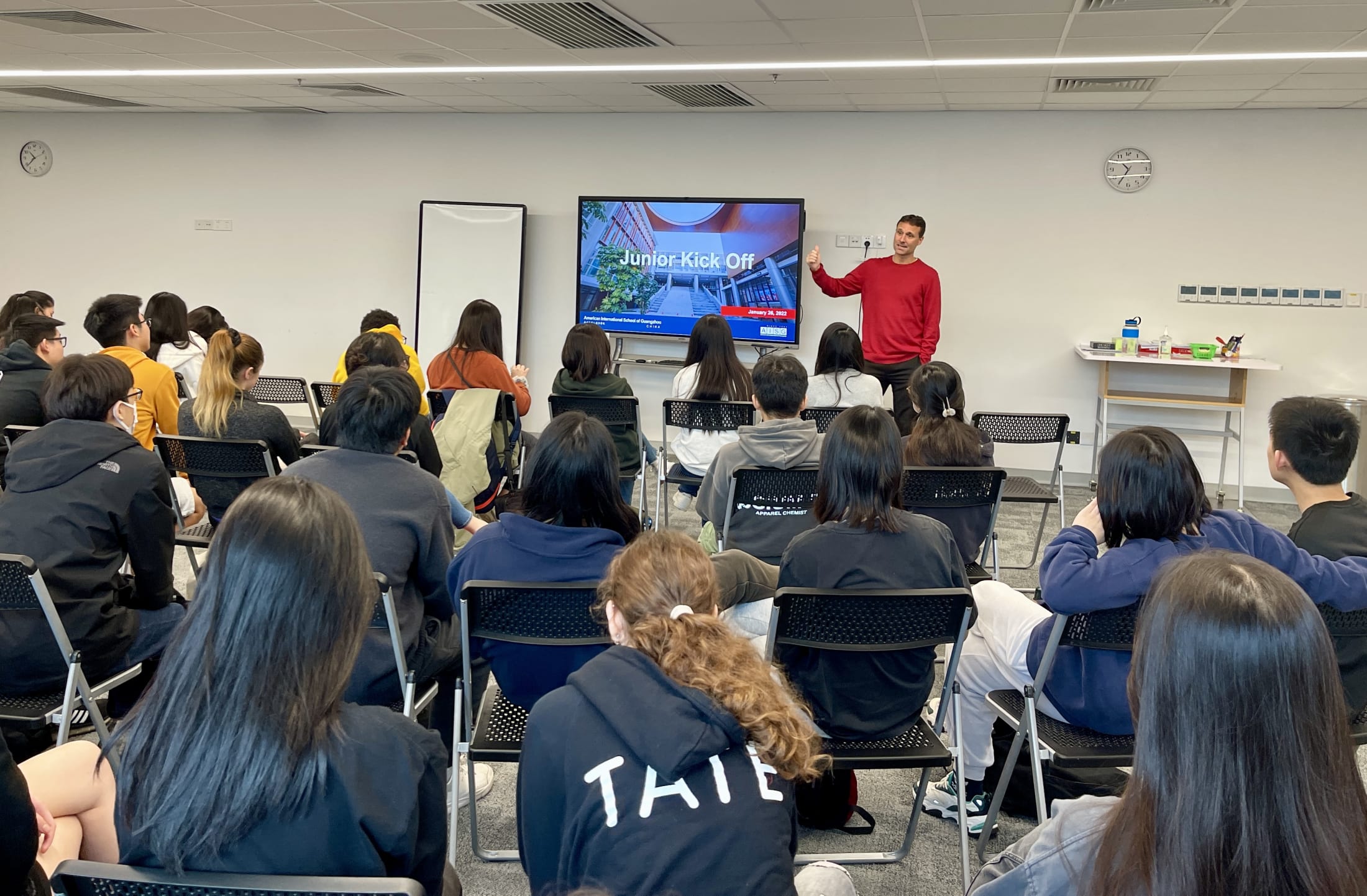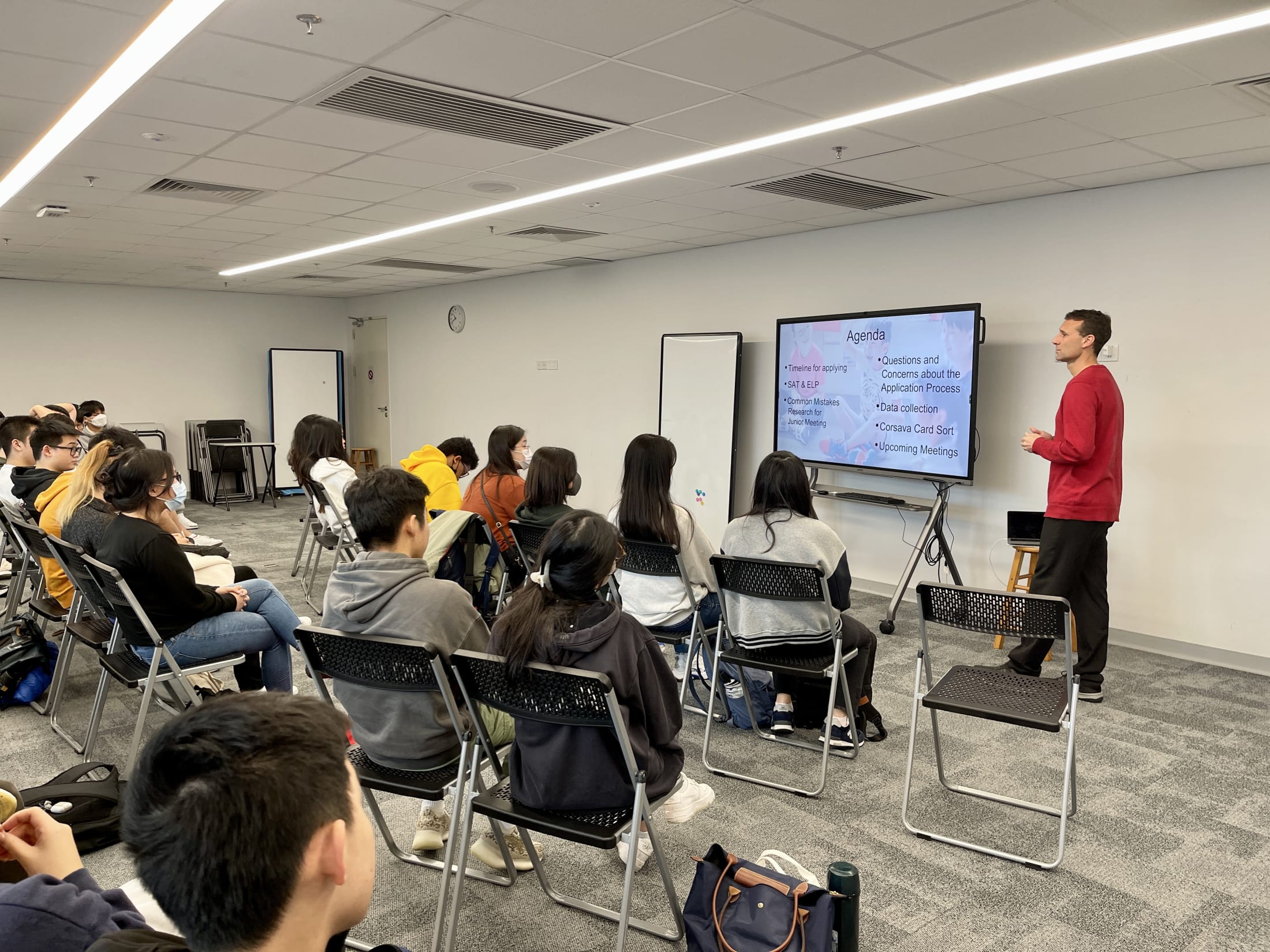AISG College Counseling
AISG employs a full-time college counselor to facilitate the application process. The college counselor is there not only for the students, but also for the parents, offering a tailor-made, individualized college plan aimed at connecting students to pathways and college programs they are passionate about pursuing.
 |
Our College Counselor AISG's current college counselor is Dr. Justin Walker, whose high-level profile and extensive expertise ensure AISG's outreach and reputation in the college circuit. |
We continue with the hot topic of “University Rankings” with examples of how their methodology is unfairly biased and how relying on them only clouds your judgement in finding your “best fit” school.
Last time we broke down the rankings. It was pretty scary. We put everything we want to believe in the hands of a now defunct print magazine which relies on this charade to stay relevant. The methodology overwhelmingly favors rich schools. The criteria have almost nothing to do with a student’s experience. Quality of education is not measured. Ordinal ranking completely discounts the multiple individual programs and facets of a particular institution. These are facts. The rankings have long been under attack by the public (including Malcolm Gladwell) and the education world at large.
As the president of a university that is among the top-ranked universities, I hope I have the standing to persuade you that much about these rankings - particularly their specious formulas and spurious precision - is utterly misleading.
-Gerhard Casper, President, Stanford University, 1992-2000
Only 2% of college admission directors and a sad 3% of counselors think ranking systems are very effective at helping students find a good fit.

Can the rankings be gamed?
Absolutely. This isn’t an opinion. Because there is a direct correlation between how much money is spent (and given to), spending more money earns points. Accepting different (high achieving) students yields results. Ensuring, at all costs, a student graduates (not how, or with what, just that they do) with as little debt as possible will help. Northeastern University is one of the schools that focused intently on improving their rankings. Two decades ago, Northeastern was considered a third-tier, blue-collar commuter school stuck with an urban campus.
But then a new college president took over and set out on saving the institution by doing whatever was possible to boost its U.S. News ranking. Six years ago, Boston Magazine quoted the Northeastern president as saying, “There’s no question that the system invites gaming.”
In 2020, U.S. News ranked Northeastern, which is now an extremely popular destination, as No. 40 in the coveted national university category. A couple of decades ago it was ranked No. 162 and it was rare for anyone outside of Boston to have heard of it.
George Washington University was another struggling commuter school that successfully cracked the U.S. News college rankings code and began attracting affluent students who could pay higher prices for a bachelor’s degree and, in turn, attract even more high-income teenagers. Ranking manipulation catapulted GWU in the rankings. It’s now ranked No. 63 in the national university category.
Institutions have been caught cheating and manipulating their data (reminder: these data are self-reported by the universities themselves and not externally regulated). In the wake of Varsity Blues, is it any wonder people have attempted to cheat? A whopping 91% of admissions directors think institutions are cheating the system.
And if a school isn’t on this list, it must not be worth it, right? So wrong. Some schools are against the rankings and refuse to participate. Reed College, a highly intellectual school, leads the charge against the rankings every year. It costs them apps from people who don’t know their name from the rankings, but they pride themselves on what they provide and are not bothered by media influence.

At What Cost?
Below are quotes from actual parents and students:
“I am not sending you to the US unless you get into a top 20 university.”
What happens if a student got into the #21 university which, by the time they graduated, becomes the #19 university? Would they get to go then?
“These are the schools I am willing to pay for. If you don’t get it, you’ll go to (Korea, UK, HK, etc.).”
This is brand-washed language. Can it be that you are so consumed by this media influence it is impossible to see that another place may be worth the value (or perhaps a much better deal)?
“In China/Korea, the name of the school matters for the job.”
To the parent: Where did you go to school? Most students will go on to graduate programs and/or jobs that will teach them much more about their field than undergraduate education can. Why is this so expensive and important to you?
“My dad wanted me to apply.”
Why is there so much parent value in these comments and so little student? Who is driving the process?
“Well, I’ll still apply to USC/BU/NYU but my first choice is Harvard/Columbia.”
-3.4 GPA student with 1200 SAT (aka, not realistic for any of those schools)
What are we doing to these children? We talk about “best fit” in every meeting and then we toss that out the window for rankings that measure nothing we value.
Why are we not moving away from the rankings as a field? In fact, it seems like people want to talk about them more. How does this still exist? It should be abolished, or at the very least, relegated to some dark corner of the internet, yet it almost seems to drive current discussion.
A plea to students and parents (and universities) out there: Please do not believe that this is what makes a school good for you. Focus on the experiences you seek and find options that fit what you are bringing and where you are going. There is more out there than you could ever need, so do not miss your chance to seize it.
At AISG, this valuable counseling insight is one of the many reasons why AISG is The Premier International School in Guangzhou. To learn more about AISG College Counseling, click here.
Our Next Article About College Counseling
How to find those hidden gems of underappreciated university destinations.